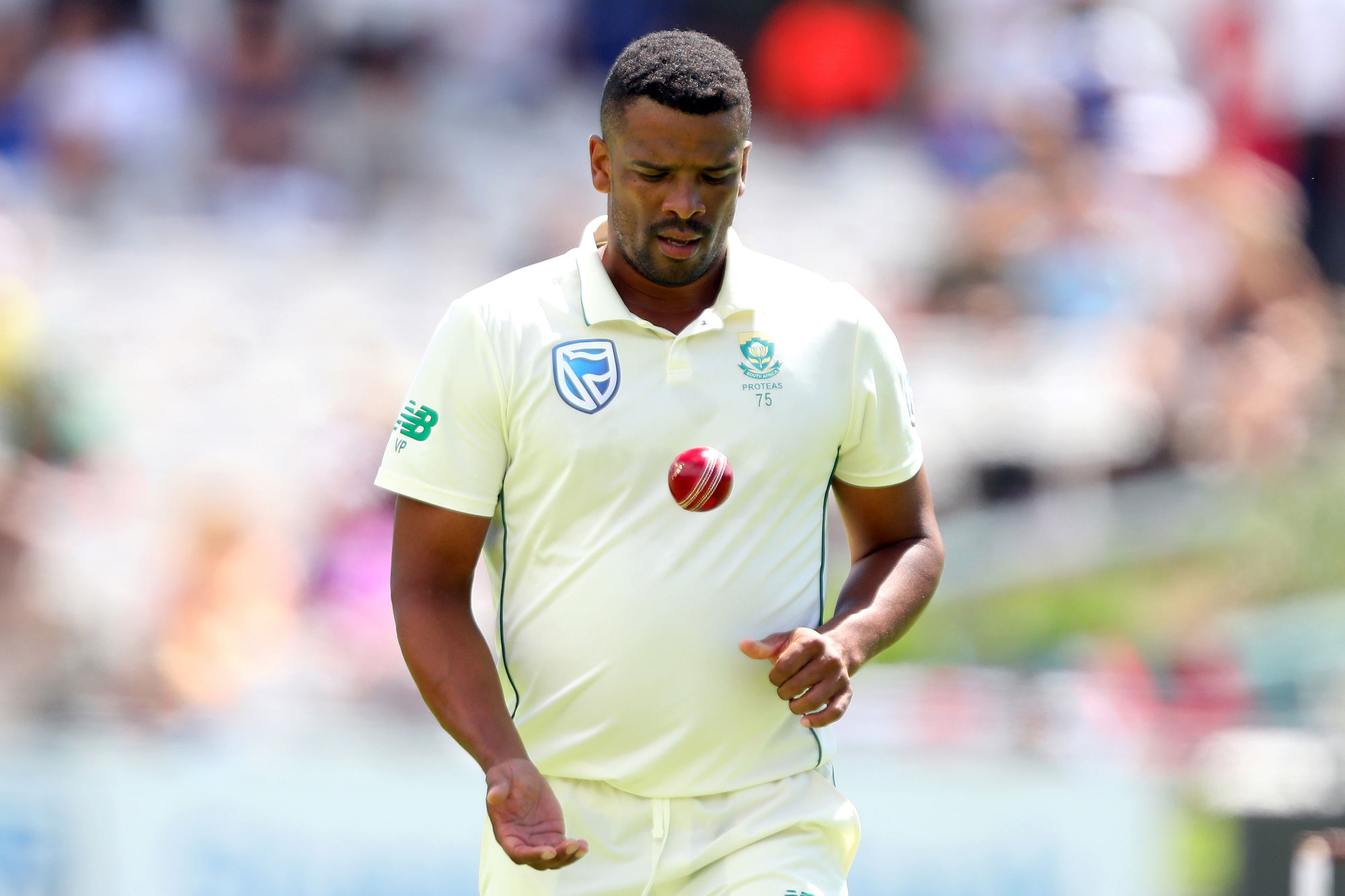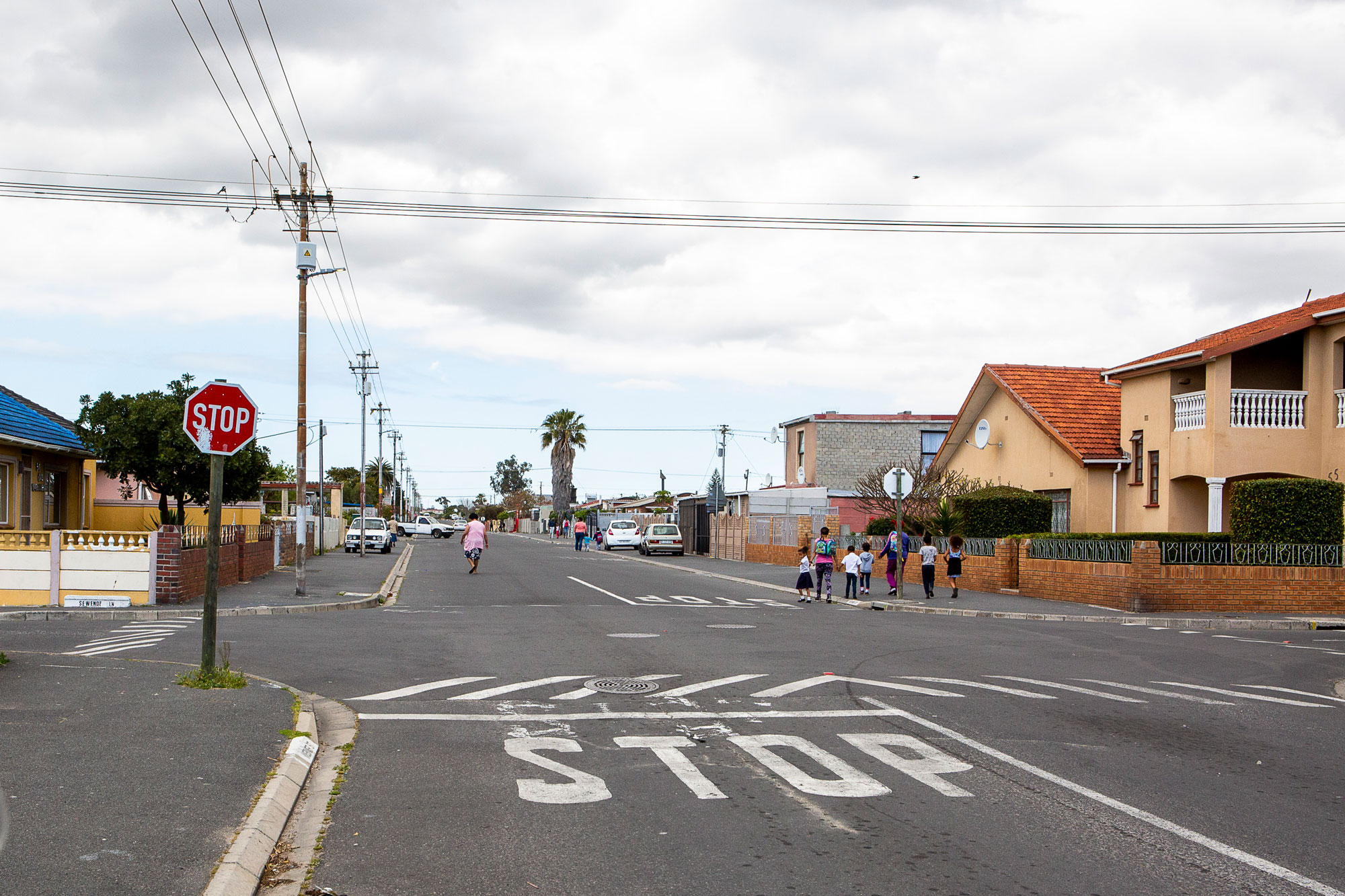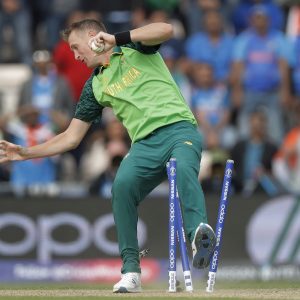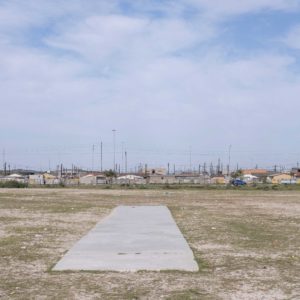Vernon Philander wants SA cricket back on track
Covid-19 may have scuppered his county cricket plans, but England’s loss is South Africa’s gain as the cricketer turns his attention to the domestic game, on and off the field.
Author:
10 August 2021

As far as sporting swansongs go, Vernon Philander’s last dance with cricket suffered a misstep, through no fault of his own. His transition from international cricketer to a stint of English county cricket in the autumn of his career was upended by a very global pandemic and a very personal tragedy. It was a life-changing event with which he is still trying to come to terms.
The former Proteas allrounder’s plan to take up a golden opportunity with Somerset in the southwest of England ended before it began. But county cricket’s loss may prove a boon for the South African domestic cricket system as it looks to a new dawn under new administration and a new, old format that harks back to the days of strength-versus-strength provincial cricket.
Related article:
Covid-19 halted Philander’s contract with Somerset, but it was the death of his younger brother Tyrone, gunned down in the streets of Ravensmead in Cape Town in October 2020, that brought his world to a standstill. Philander’s 32-year-old sibling was shot and killed while transporting water to a neighbour, with no obvious motive for the murder.
“It’s been tough. It’s something that we’re not really going to get to terms with. The minute you think, ‘I’m okay,’ you get taken back again. From a personal perspective, it has been tough. That’s one of the reasons why I didn’t take to the cricket field earlier. It is something that we’ll have to make peace with. Our lives have to go on,” Philander says.
“I’ve really devoted myself to being a people’s person and really trying to make a difference in the way I can. That has hampered me for the last year. I’m trying to come to terms with it, and hopefully, I can be myself again, inspire people and keep making sure that we move South Africa to a better place.”
An unintentional retirement
Inspiring people has been Philander’s currency on and off the cricket field for more than a decade, from the moment he made his debut in 2011. It started with a stunning Man of the Match haul of eight wickets for 78 runs in the first Test of a series against Australia at Newlands in Cape Town, and followed that up with a five-for in the second Test, winning the Man of the Series accolade in the process. He was unstoppable against Sri Lanka, taking 16 wickets, and then took his form to New Zealand, earning himself six more five-wicket hauls in a single innings in his first seven Tests, and reaching 50 wickets within just 139 days of his debut. It was a remarkable achievement by any standard and the kind of match-winning performance that is sorely missing in the current South African camp.
Philander bowed out of international cricket at his beloved home ground of Newlands in January 2020. It was a stage he’d made his own as “Big Vern”, the cunning swing bowler, and more than capable lower-order batsman. Newlands was Philander, and Philander was Newlands.
Related article:
As the product of the people who loyally crowded the embankment under the oaks to watch him play, tears and sorrow descended on Newlands when Philander disappeared into the shadow of the Members Pavilion for the last time. It was a late summer afternoon, the sun dipping behind the stands, and he’d taken 224 Test wickets at an average of just 22.32.
“I wasn’t meant to be retired from the game completely, just international cricket. But be that as it may, Covid came about and put everything on hold. The plan was to go to Somerset, and then I just felt like I’ll give the last year a miss and give myself a proper break away from the game,” Philander says.
“When I lost my brother last year, that also played a big part of it. I spent a bit of time away from the game. It gave me a better perspective of life. But also, standing from the outside and looking in, you get a different view of how you succeed again. In a sense, it was good that I got a bit of a break from it. I’ve been at it for 16 or 17 years, so a year’s sabbatical served me good.”
‘More years in me’
Later this year, Philander will lace up his boots again and try to inspire again as he makes a comeback for Western Province and the Cobras in a restructured domestic competition that sees 15 teams split into two divisions. It’s a challenge that has whet the appetite of a player who feels he has unfinished business in the game.
“I’m looking forward to playing with the Cobras … This last year has given me more ammo and I’m really looking forward to making an impact at the back end of the year,” Philander says.
“Watching the guys out there, and me visualising what I’ve been doing sitting on the outside, you probably start realising I have two more years in me to play competitive cricket. I think it was really that, wanting to make the most out of a sport that I’ve always fallen in love with. I want to make sure that I finish on a high and really enjoy the last few years.”
Philander lines up with old teammates such as Hashim Amla in the new competition, a moment he feels will get the blood flowing again as he rolls back the years. But his focus will also be on developing younger talent and allowing promising players to learn and benefit from his experience.
Related article:
“I think there’ll always be that competitive edge, where you want to get one up on your former teammates as well as the current guys. I think also a big thing lacking in the current guys is the lack of on-field experience. When I started, I was fortunate to have guys like Charl Willoughby, Alan Dawson, Neil Johnson and all the senior guys around. That plays a massive part in any development of players.
“That’s a key role I see myself playing, being that senior figure on the field, to get the calmness factor back, and giving the guys the freedom of playing and expressing themselves. I think that’s exactly why I and guys like Hashim have decided to come back. Obviously, we need to perform. But we want to make sure that we’re guiding this young bunch in the right direction.”
A year away from the cricket field and sitting in the commentary box will not have done Philander’s fitness any favours. “Sitting on the couch is not an option,” he laughs.
The way forward
Philander has long been a proponent of greater transformation in the game. He has been vocal about cricket’s need to address past wrongs, and a need to correct its path. Years of maladministration coupled with inherent, systemic discrimination have led the game down a slippery path from which it is trying to rescue itself with the election of a new Members Council, and new leadership.
When advocate Dumisa Ntsebeza was announced as the ombudsman for Cricket South Africa’s Social Justice and Nation Building (SJN) project, it was a move that pleased Philander and many Black players. It’s seen as a necessary and practical attempt at self-correction and inclusion. But it’s not the be-all and end-all of transformation.
“Those stories need to be heard. It’s a way of giving both sides a platform to come in and express themselves. I think that’s the right way of doing it because I can come and lay down my dispute, but also the person whom the dispute or claim is against also has an opportunity to come in and express themselves. I think that’s the right way,” Philander says.

“I’ve always been a firm believer of standards, irrespective of what your race is. If there are jobs advertised in cricket in South Africa, there also needs to be certain criteria and qualifications set out for that particular job. I think that’s the only way you’re really going to overcome all of this.
“Transformation is a massive topic. The manner in which we’ve gone in would have probably worked for a short period of time, by taking kids out of the townships and putting them in well-off schools. Ultimately, you want those kids to go back to their townships and really make a difference in their homes. But what the system has done is it has taken those kids out of the townships, they’re forever lost. We’re going have to change the model around a little bit, and really empower those communities and say, ‘How can we help you guys? How can we really uplift the community?’”
And herein lies Philander’s value as a former international cricketer who is now devoting his time to the domestic game. By revealing what went wrong in the past and having the perspective to help plot a way forward for the game he loves so dearly, he becomes an allrounder off the field too.
“I’d like to see all of us play our part, but it’s going to boil down to people putting the egos aside and taking responsibility for what has gone wrong. That’s the only way I can see the sport moving in a better direction. For me, it’s about giving everyone a platform. It’s tough. Some guys have been brought up with some sort of entitlement. I think that’s the only way that we really get to make a change, if people are willing to give up this entitlement and be challenged just like everyone else. That’s the only way the game is really going to move forward in South Africa.”



